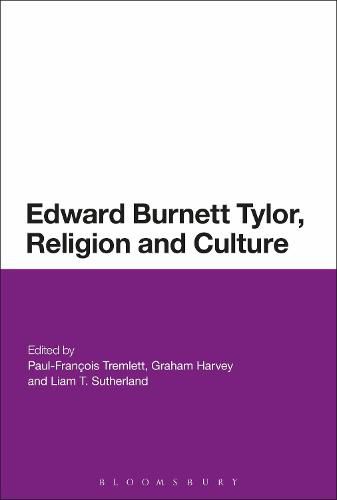Readings Newsletter
Become a Readings Member to make your shopping experience even easier.
Sign in or sign up for free!
You’re not far away from qualifying for FREE standard shipping within Australia
You’ve qualified for FREE standard shipping within Australia
The cart is loading…






Through revisiting and challenging what we think we know about the work of Edward Burnett Tylor, a founding figure of anthropology, this volume explores new connections and insights that link Tylor and his work to present concerns in new and important ways.
At the publication of Primitive Culture in 1871, Tylor was at the centre of anthropological research on religion and culture, but today Tylor’s position in the anthropological canon is rarely acknowledged. Edward Burnett Tylor, Religion and Culture does not claim to present a definitive, new Tylor. The old Tylor - the founder of British anthropology; the definer of religion; the intellectualist; the evolutionist; the liberal; the utilitarian; the avatar of white, Protestant rationalism; the Tylor of the canon - remains. Part I explore debates and contexts of Tylor’s lifetime, while the chapters in Part II explore a series of new Tylors, including Tylor the ethnographer and Tylor the Spiritualist, re-writing the legacy of the founder of anthropology in the process.
Edward Burnett Tylor, Religion and Culture is essential reading for anyone interested in the study of religion and the anthropology of religion.
$9.00 standard shipping within Australia
FREE standard shipping within Australia for orders over $100.00
Express & International shipping calculated at checkout
Through revisiting and challenging what we think we know about the work of Edward Burnett Tylor, a founding figure of anthropology, this volume explores new connections and insights that link Tylor and his work to present concerns in new and important ways.
At the publication of Primitive Culture in 1871, Tylor was at the centre of anthropological research on religion and culture, but today Tylor’s position in the anthropological canon is rarely acknowledged. Edward Burnett Tylor, Religion and Culture does not claim to present a definitive, new Tylor. The old Tylor - the founder of British anthropology; the definer of religion; the intellectualist; the evolutionist; the liberal; the utilitarian; the avatar of white, Protestant rationalism; the Tylor of the canon - remains. Part I explore debates and contexts of Tylor’s lifetime, while the chapters in Part II explore a series of new Tylors, including Tylor the ethnographer and Tylor the Spiritualist, re-writing the legacy of the founder of anthropology in the process.
Edward Burnett Tylor, Religion and Culture is essential reading for anyone interested in the study of religion and the anthropology of religion.